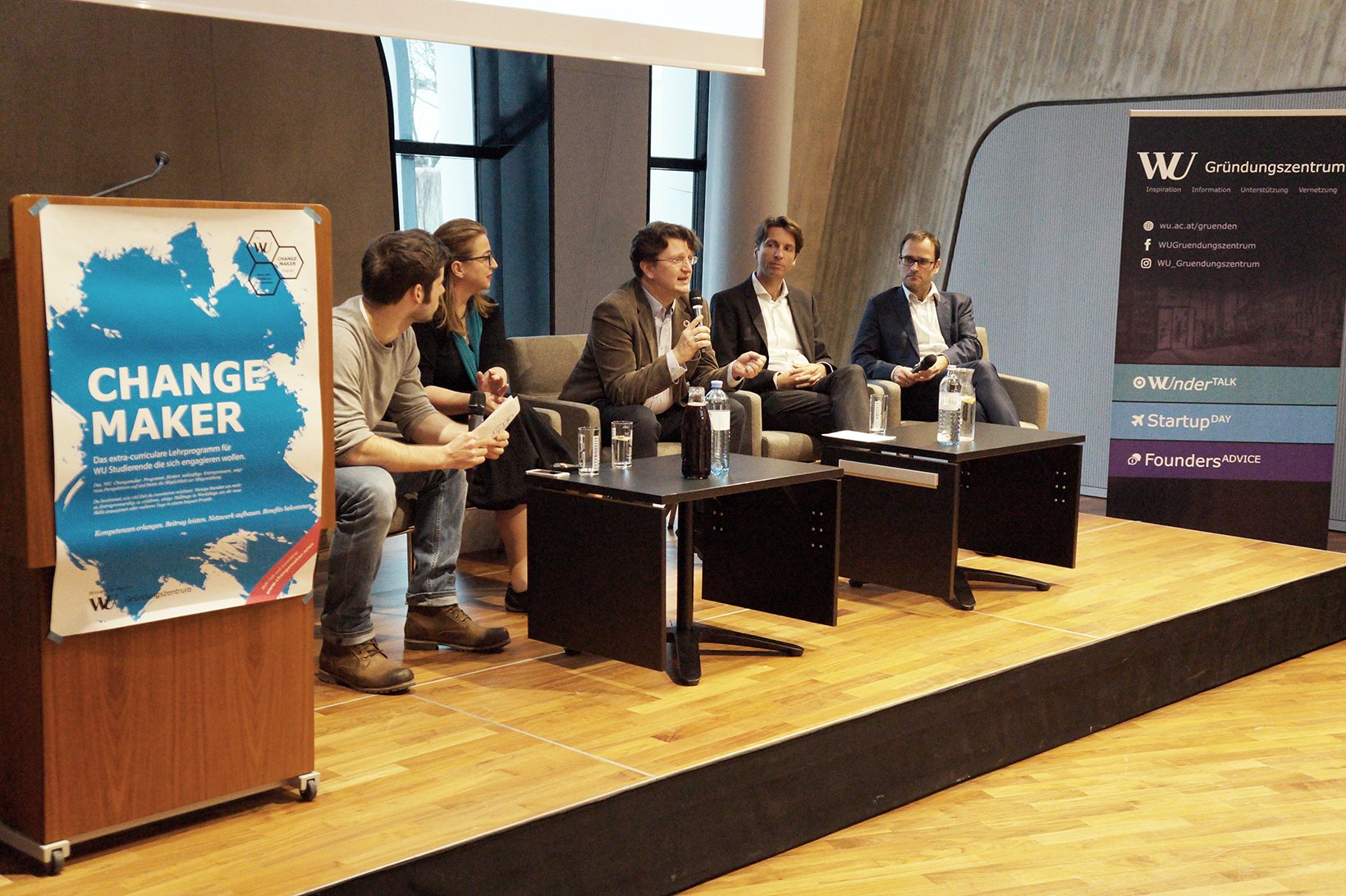Highly Employable
WU graduates are in high demand on the job market. To find out which skills employers appreciate most in our graduates, we surveyed around 250 different companies. The human resource officers surveyed mentioned WU graduates’ business and economics expertise, their entrepreneurial approach, the ability to work independently, and analytical and team skills as some of the most important competences.
Fit for the 21st Century
Entrepreneurship and innovation skills are key qualifications for the 21st century. With its Entrepreneurship Center, WU has established a competence center intended to encourage an entrepreneurial spirit among its students and provide them with important skills..

Our fast-moving, strongly interconnected, and constantly changing society is faced with increasingly complex challenges that require completely new skills to master. Entrepreneurs have the skill set needed for these challenges: They have the courage to develop new ideas, see challenges as opportunities, and implement innovative solutions.
The Changemaker Program was launched in the summer of 2017. The three-phase program is open to all WU students and is intended to provide low-threshold access to entrepreneurial skills.

Our efforts to instill entrepreneurial skills in our students were rewarded with an excellent ranking result in the 2017 Entrepreneur Spotlight Challenge. A jury of experts from the Association to Advance Collegiate Schools of Business (AACSB) listed the best academic entrepreneurship programs worldwide, and WU’s Entrepreneurship Avenue was ranked among the 15 best programs, as the only European program included on the list.
The fourth edition of Entrepreneurship Avenue, held in May 2017, was truly outstanding: 1,500 guests from 50 countries around the world attended to find inspiration, 14 top speakers from Austria and beyond told their personal success stories, and 18 teams competed in the Start-Up Pitch event.
Students in Court
Participating in a court trial, preparing briefs, and arguing a case before a panel of international judges is a unique and important experience for law students, and WU students are regularly represented at moot court events.
In April, a team from WU’s Institute for Austrian and International Tax Law won the International and European Tax Moot Court, competing against teams from 15 universities from Europe, the US, and Africa.
A WU team took part in the Hugo Sinzheimer Moot Court Competition in labor law in June, coming in at third place of the 12 participating international teams.
Socially Responsible in Thoughts and Action
Being a responsible university also means that we can help change the future in a sustainable way through the actions of our graduates. To give our students the tools they need to bring about socially responsible change, we provide them with a comprehensive education in social skills and support them in their personal development.

Bachelor’s-level students learn useful and important soft skills in workshops like “Communication and Conflict Management” or “Voice, Movements, and Body Language.” Students who want to start applying these skills in practice can volunteer for WU’s Mentoring@WU and Volunteering@WU programs. In the Mentoring@WU program, experienced students who have been at WU for several semesters provide support to new students and help them get off to a good start in their studies. Volunteering@WU participants work with socially disadvantaged children and teens, helping them with their schoolwork and doing recreational activities together.
In the 2017/18 winter semester, we began issuing a Social Skills Certificate to students, which they can include with future job applications to give them a further advantage when starting their careers. The certificate indicates the soft skills students have acquired through workshops and volunteer activities.
The following skills can be included on the Social Skills Certificate:
- Cooperative negotiation
- Conflict management
- Dealing with uncertainty and risk
- Social responsibility
- Dealing with cultural differences and diversity
- Empathy
- Motivational skills
- Moderating skills

